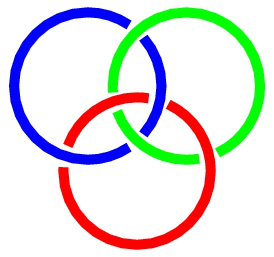Speaker
Dr
Francesca Ferlaino
(Institut für Experimentalphysik and Institut für Quantenoptik und Quanteninformation, Innsbruck, Austria)
Description
Ultracold atomic gases are versatile systems to study few-body physics because of full control
over the external and internal degrees of freedom. The scattering properties can be controlled
because of the magnetic tunability of the two-body scattering length in the proximity of a Fes-
hbach resonance and weakly bound dimers can be produced. Here, we experimentally explore
three- and four-body physics by studying ultracold (30-250 nK) atom-dimer and dimer-dimer
collisions with Cs Feshbach molecules in various molecular states and Cs atoms in different
hyperfine states. An atom-dimer resonance is observed and interpreted as being induced by a
trimer state, possibly an Efimov state [1]. A strong magnetic field dependence of the relaxation
rate is also observed in a atom-dimer mixture made of non-identical bosons. Dimer-dimer in-
elastic collisions have been studied in a pure, trapped sample of Feshbach dimers in the quantum
halo regime. We identify a pronounced loss minimum with varying scattering length along with
a further suppression of loss with decreasing temperature [2]. These observations provide insight
into the physics of a few-body quantum system that consists of four identical bosons at large
values of the two-body scattering length.
References
[1] S. Knoop, F. Ferlaino, M. Mark, M. Berninger, H. Sch ̈obel, H. -C. N ̈agerl, and R. Grimm, ” Observation of an Efimov-like resonance in ultracold atom-dimer scattering”, arXiv:0807.3306v1 [cond-mat] (2008).
[2] F. Ferlaino, S. Knoop, M. Mark, M. Berninger, H. Sch ̈obel, H. -C. N ̈agerl, and R. Grimm, ” Collisions between tunable halo dimers: exploring an elementary four-body process with identical bosons”, Phys. Rev. Lett. 101, 023201 (2008).
Author
Dr
Francesca Ferlaino
(Institut für Experimentalphysik and Institut für Quantenoptik und Quanteninformation, Innsbruck, Austria)
Co-authors
Prof.
H. C. Nägerl
(Institut für Experimentalphysik and Institut für Quantenoptik und Quanteninformation, Innsbruck, Austria)
Dr
M. Berninger
(Institut für Experimentalphysik and Institut für Quantenoptik und Quanteninformation, Innsbruck, Austria)
Dr
M. Mark
(Institut für Experimentalphysik and Institut für Quantenoptik und Quanteninformation, Innsbruck, Austria)
Prof.
R. Grimm
(Institut für Experimentalphysik and Institut für Quantenoptik und Quanteninformation, Innsbruck, Austria)
Dr
S. Knoop
(Institut für Experimentalphysik and Institut für Quantenoptik und Quanteninformation, Innsbruck, Austria)

